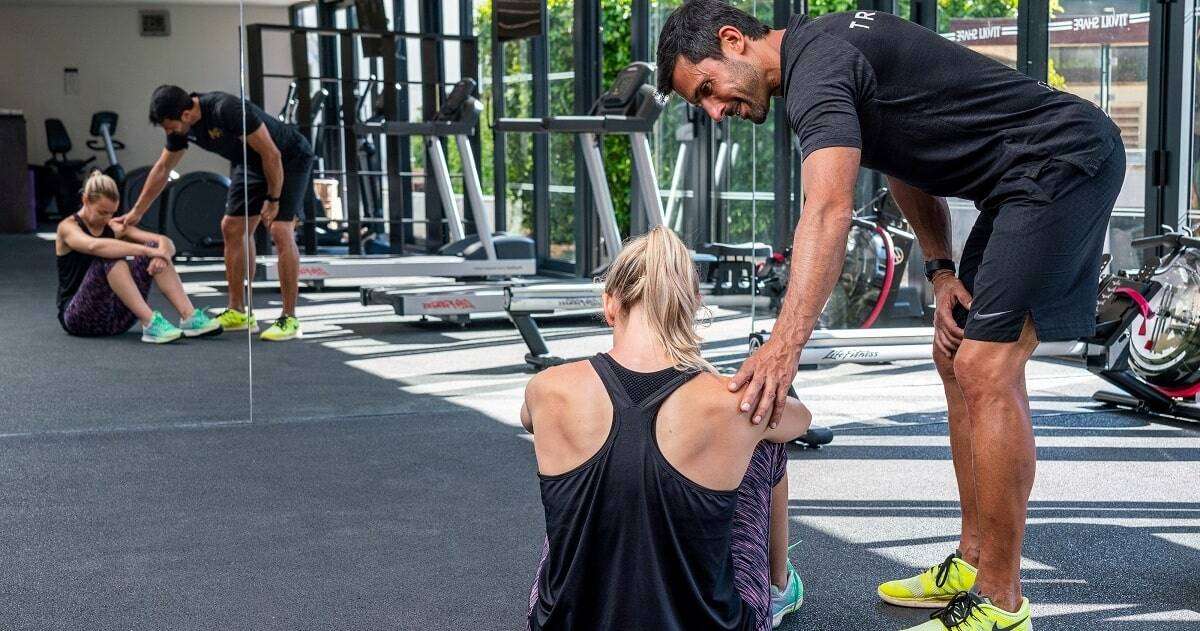
Homework
July 12, 2022
Tips for an active vacation
August 2, 2022
Homework
July 12, 2022
Tips for an active vacation
August 2, 2022What happens to your body when you stop exercising? Unfortunately, losing good habits is much easier than gaining them...
DATE: July 2022
AUTHOR: Rui Madeira | Exercise

While, in RM Trainer's opinion, it is true that the impact of these consequences will vary according to age, gender, and the type and frequency with which the exercise was performed, giving up the activity will not be a good idea.
Whatever the reason, a lack of physical activity will cause the body to lose some of the progress it has made. According to an article in the Metropolitan magazine, sports science has studied the repercussions of abandoning exercise very well and the conclusion is that interrupting the regular practice of exercises favors the logical aging of the body, in every way.
How long does it take to lose shape?
When the activity is practiced with some frequency, the physical evolution grows exponentially; but if you stop practicing, the regression is even faster. While it's true that this will depend on many individual factors, there are a number of experts who agree that with just two weeks any progress made can be lost.
Depending on how long we have been without physical activity, we will see the following changes:
- Two or three days without exercising: there will be no setbacks, you can even improve your physical condition because rest and assimilation of training are favored.
- A week without exercising: you will feel more bloated and slower when you get back to training, but that still won't be a reason to lose your physical condition.
- A month without exercising: respiratory capacity will be much lower and the cardiovascular system will be less efficient, which can also translate into loss of muscle mass.
- More than a month without exercising: from this moment on any physical form will become just a memory, so it's time to start over from scratch!
Effects that are not seen, but felt…
Cardio effects
In an active body, and especially if you are used to resistance exercises, the heart's ability to pump blood increases and the organ becomes active and strong.
In addition to good general oxygenation, physical activity increases capillarity. That is, the ability of blood vessels to irrigate more areas and organs grows. A well-oxygenated and well-nourished body not only feels better, it also makes better use of its resources and performance.
By abandoning a workout and reducing the work of the muscles, the body consumes less oxygen and also generates less carbon dioxide. Circulation also decreases, because muscles don't need extraordinary supplies of oxygen to stay active.
Metabolism slows down
One of the great benefits of sport is the ability to change metabolism, speeding it up. A healthy and balanced diet and the practice of exercises allow you to act on the metabolism, which otherwise spends little and therefore tends to accumulate energy in the form of fat. Training, by increasing muscle mass, forces the metabolism to consume more energy, which is not stored.
On the other hand, exercise, in general, facilitates lowering blood glucose levels, which is why the risk of diabetes is also reduced.
Goodbye to mental well-being
Finally, exercise also has effects on our mind. When exercising, endorphins are released, which generate a feeling of well-being and it has been proven that feeling better psychologically removes the risk of depression, in addition to strengthening self-esteem and having a fuller life.
RM Trainer points out that, as you can see, there are only good reasons to stay active! Think about it when you are most unmotivated.
Remember, to stop is to die...
